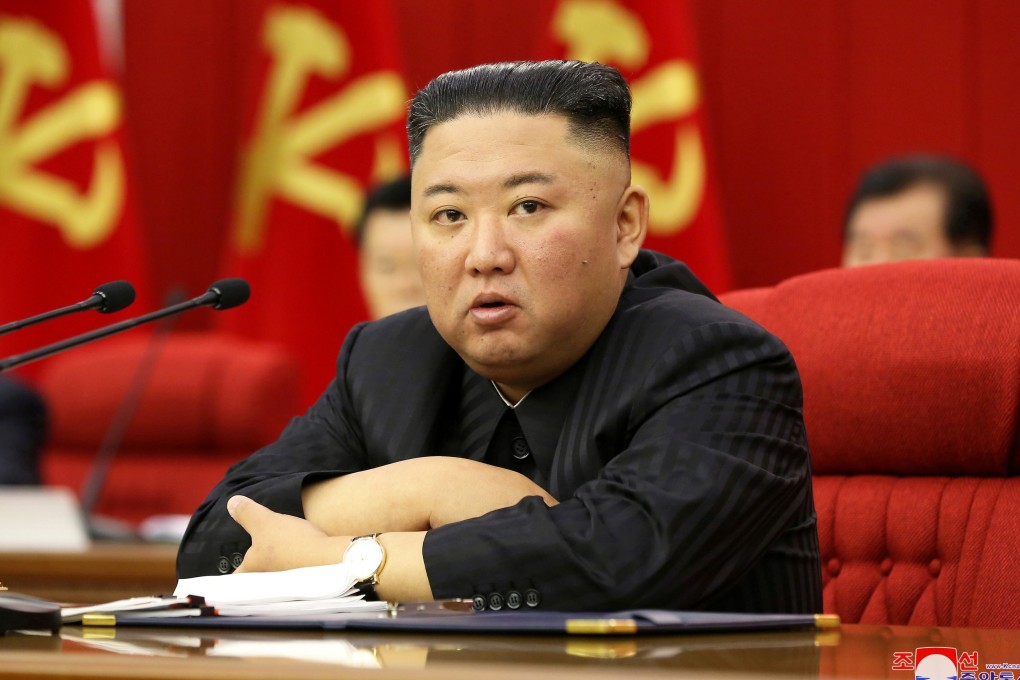North Koreans are worried about ‘emaciated’ leader Kim Jong-un, state media reports
- The rare public comment on Kim’s health comes after foreign analysts noted that Kim appeared to have lost a noticeable amount of weight
- Given Kim’s tight grip on power in North Korea international media, spy agencies and specialists closely watch his health

The rare public comment on Kim’s health comes after foreign analysts noted in early June that the autocratic leader, who is believed to be 37, appeared to have lost a noticeable amount of weight.
“Seeing respected general secretary [Kim Jong-un] looking emaciated breaks our people’s heart so much,” the man said in an interview aired by state broadcaster KRT on Friday. “Everyone is saying that their tears welled up.”
In the clip, which Reuters could not independently verify, Pyongyang residents were seen watching a big screen on the street showing a concert attended by Kim and party officials after a plenary meeting of their Workers’ Party of Korea (WPK).
The broadcast did not provide any details on what had led to the weight loss.
When Kim reappeared in state media in June after not being seen in public for almost a month, analysts at NK News, a Seoul-based website that monitors North Korea, noted that his watch appeared to be fastened more tightly than before around an apparently slimmer wrist.

Given Kim’s tight grip on power in North Korea – and the uncertainty over any plans for a successor – international media, spy agencies and specialists closely watch his health.